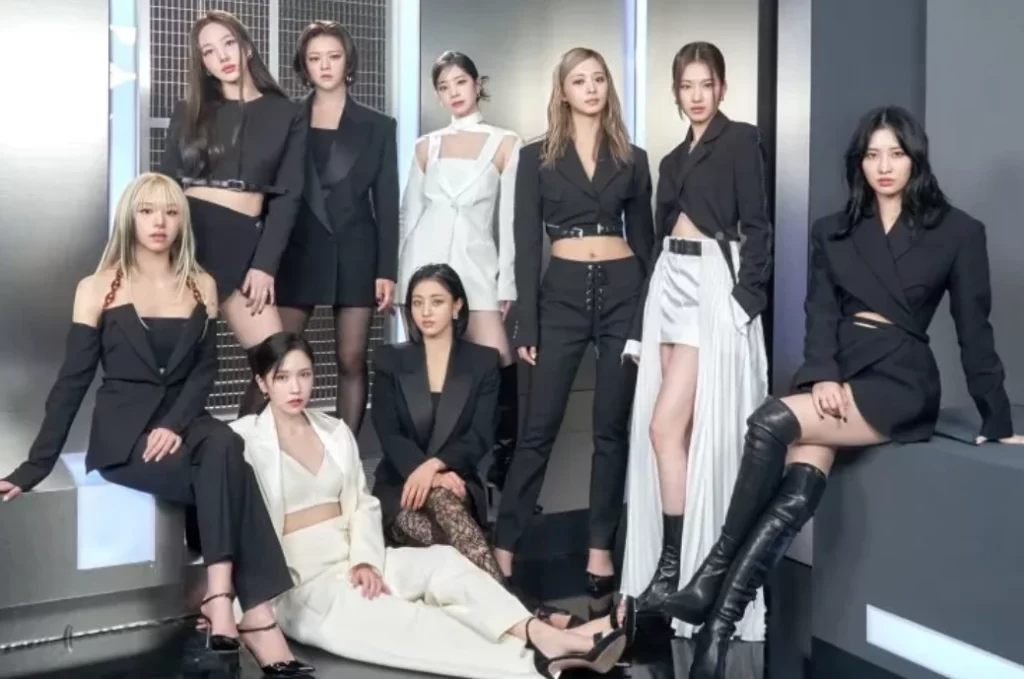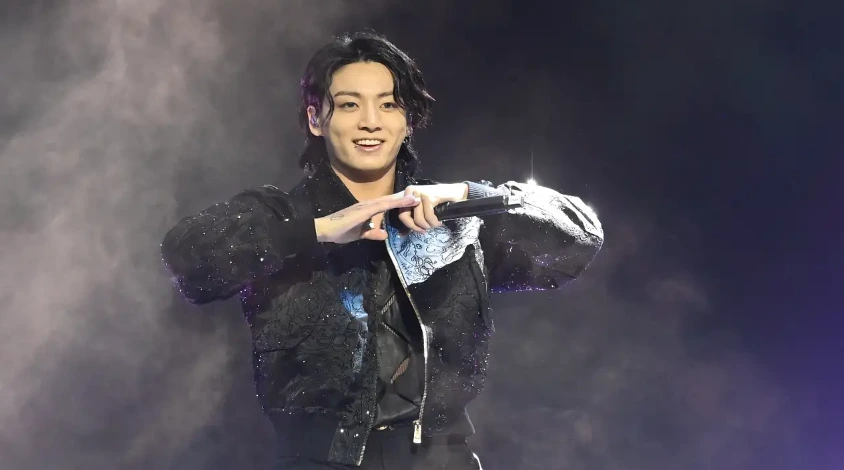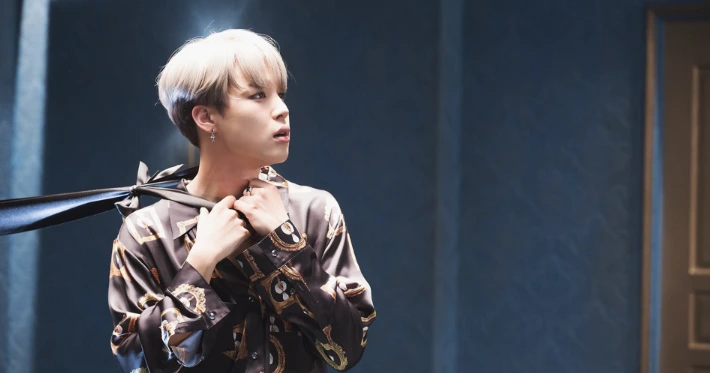K pop, short for Korean pop songs, has become a global phenomenon and a symbol of South Korea’s cultural prowess. K-pop is at the heart of Hallyu, South Korean pop songs, which has become a major driver of global culture. The Korean wave has made its mark on the world with Korean dramas on Netflix, Korean skincare products dominating the cosmetics industry, and Korean cuisine becoming a staple on menus worldwide.
K-pop’s success can be attributed to its distinctive blend of addictive melodies, slick choreography, and production values, combined with the endless parade of attractive South Korean performers who spend years in grueling studio systems learning to sing and dance in synchronized perfection. In the past five to ten years, K-pop has become increasingly visible to global audiences, with South Korean artists hitting the Billboard Hot 100 chart at least 27 songs between 2009-2021.
- “Nobody” by Wonder Girls (2009)
- “Gangnam Style” by Psy (2012)
- “Gentleman” by Psy (2013)
- “I Am the Best” by 2NE1 (2013)
- “Fantastic Baby” by BIGBANG (2013)
- “Ringa Linga” by Taeyang (2013)
- “Growl” by EXO (2013)
- “Missing You” by 2NE1 (2014)
- “Come Back Home” by 2NE1 (2014)
- “Eyes, Nose, Lips” by Taeyang (2014)
- “Bang Bang Bang” by BIGBANG (2015)
- “Loser” by BIGBANG (2015)
- “I Need U” by BTS (2015)
- “Dope” by BTS (2015)
- “Fire” by BTS (2016)
- “Blood Sweat & Tears” by BTS (2016)
- “Spring Day” by BTS (2017)
- “Not Today” by BTS (2017)
- “DNA” by BTS (2017)
- “Mic Drop” by BTS ft. Desiigner (2017)
- “Fake Love” by BTS (2018)
- “Idol” by BTS ft. Nicki Minaj (2018)
- “Boy With Luv” by BTS ft. Halsey (2019)
- “On” by BTS (2020)
- “Dynamite” by BTS (2020)
- “Life Goes On” by BTS (2020)
- “Butter” by BTS (2021)
South Korea hosted the 2018 Winter Olympics in Pyeongchang at a moment of heightened geopolitical tensions, and K-pop played a prominent role in showcasing the country’s cultural prowess and a source of national pride. K-pop songs with significant international and digital presences were featured at the opening ceremonies, such as Twice’s “Likey” and Big Bang’s “Fantastic Baby.” Psy’s “Gangnam Style” also played, which demonstrates the versatility of K-pop stars who excel at singing, comedy, rap, dance, and social commentary.
Korean pop songs have become the international face of South Korea, strategically designed to earworm its way into your brain and elevate South Korea’s culture onto the world stage. Through K-pop, South Korea’s integration into global culture is fully realized, as seen at the 2018 Winter Olympics opening and closing ceremonies.
K-Pop’s roots can be traced back to 1992 with Seo Taiji and Boys, but K-Pop as we know it today wouldn’t exist without South Korea’s reformation of its democratic government in 1987 and the subsequent modernization and lightening of censorship that followed. Television remains the most important medium for introducing music groups to South Korean audiences, and televised talent shows were crucial in introducing music groups to South Korean audiences and remain the single biggest factor in a South Korean pop star’s success.
Korean pop music, or K-Pop, has been taking the world by storm in recent years, and it continues to captivate audiences with its unique style and presentation. K-Pop groups are often scouted through walk-in auditions held in South Korea and New York, and new TV audition shows have been established, comparable to American Idol and X-Factor, giving unknowns a chance to be discovered and build a fan base. The success of a K-Pop idol or idol group is directly tied to its live TV performances, and there are numerous talents shows, along with well-known chart TV countdown shows like Inkigayo and M Countdown, that factor into their perceived success.
Fans play an active part in K-Pop culture and have perfected the art of fan chants, where they shout alternate fan chants over the musical intros to songs, showing unity and support. The emphasis on live performances and fan interaction has helped ensure that K-Pop fan bases both at home and abroad are massive and intense to a degree that’s hard to overstate.
The women of K-Pop are typically depicted as traditional versions of femininity, with themes ranging from adorable, shy schoolgirls singing about giddy crushes to empowered women who reject male validation. While some girl groups have been marketed as rebels and mavericks, they still operate within the studio culture. However, the women of K-Pop are increasingly producing self-aware videos that navigate their own relationships to these rigid impositions. Sunmi, a former member of Wonder Girls, is an example of an artist tearing down her own carefully cultivated public image in her recent single “Heroine,” a song about a woman surviving a failed relationship.
For men in K-Pop, songs tend to break down along a “bad boy/sophisticated man” line, occasionally even within the same song. BTS is known for singing about serious issues like social pressures faced by teens, and many male groups incorporate a wide range of narrative concepts into their music, which appeals to their fanbase. However, male idols are held to even higher physical and technical standards than their female counterparts. They’re expected to deliver precision choreography, which is a significant draw for many fans.
Hip-hop is a dominant part of the K-Pop sound, particularly among male groups, and this trend has attracted criticism for cultural appropriation. South Korea has a high degree of cultural racism, and popular K-Pop groups have come under fire for wearing blackface, appropriating Native American iconography, and more. Nonetheless, K-Pop has embraced diversity in recent years, with black members joining groups and indie duo Coco Avenue releasing a bilingual single in 2017.
Co-ed bands are rare in K-Pop, with one of the few actual co-ed bands being Akdong Musician (AKMU), a brother-sister duo that became famous after winning an audition show. Despite the fact that K-Pop stars openly support LGBTQ rights, the industry aggressively markets homoeroticism in its videos, but homophobia remains prevalent. However, there are some signs of progress, with South Korea’s first openly gay idol, Holland, debuting in early 2018.
As a blogger focusing on K-Pop, it’s essential to understand the unique characteristics of male performance groups and their counterparts. Male groups often have more leeway when it comes to exploring different topics, including serious issues. K-Pop is a bundle of colorful contradictions, but it continues to captivate audiences with its unique style and presentation. As the genre continues to evolve, it will be exciting to see how K-Pop artists push boundaries and break through limitations to create even more innovative and exciting music for their fans.




